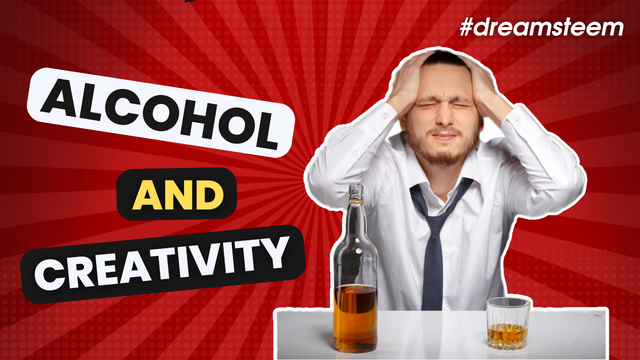In the world of literature, among legendary names, it’s hard to find those who haven’t touched a bottle. Charles Bukowski, Ernest Hemingway, F. Scott Fitzgerald—these names are familiar to anyone who has even a slight interest in the classics. I’m not a writer, just the author of a few mediocre articles, but like them, I consume alcohol. Perhaps not as much as they did, but it’s just a matter of time before I catch up with them in terms of alcohol consumption. However, it’s unlikely that I will come close to them in literary mastery.
This shared dependency makes me feel a connection with these great authors. I find it amusing to think that I understand them better than someone who doesn’t drink at all.
For a writer, alcohol often becomes a kind of "assistant." One sip, and it’s as if the internal barriers disappear; words begin to flow easily and freely. This is how Bukowski perceived it, whose lifestyle, steeped in cheap whiskey and dark bars, became his literary creed. His books are candid confessions, where he unabashedly displays his weaknesses and vices. Bukowski's sincerity draws me in as a reader, and perhaps it’s this sincerity that makes his work so memorable.
But the truth is, this sincerity spills out of the pain and helplessness that he couldn’t endure without the bottle. I have realized this from my own experience: when it’s necessary to pour something truly deep and painful onto the page, alcohol opens the door to those feelings.
If everyone had the opportunity to get by with light wine, like Fitzgerald in "The Great Gatsby," this topic wouldn’t be worth mentioning. However, we know that Fitzgerald drank not for pleasure, but out of a sense of emptiness that gnawed at him from the inside. His creative energy crashed like a wave, but with it grew the need for alcohol, which seemed the only way to calm the storm.
I, too, have experienced this illusory "control." At first, it was rare evening rituals—one or two bottles of beer to dull the noise of thoughts. But with each time I caught that fleeting euphoria, I realized it was only getting harder. Alcohol is like an open door to creativity that eventually slams shut, leaving you in darkness, unable to step away from it.
Each writer has their own reason for returning to the bottle. For Hemingway, it was a constant internal conflict, a sense of inadequacy, and a fear of loneliness. For me, it’s a sense of self-examination, perhaps less global, but just as obsessive. Hemingway believed that alcohol made him bolder and more open, allowing him to write about things he wouldn’t dare to speak of when sober.
Surely, each of these authors would advise me (and themselves, were they alive) to step away from the bottle and seek freedom elsewhere. The path to self-destruction doesn’t offer great inspiration—it only drains your energy. I realize that each time I turn to alcohol, I’m trying to fill a void. But this void is deceptive. It only deepens when you drown it.
Writers of the past left us not only their books but also warnings. As strange as it may sound, they made it clear that alcohol may seem like an enticing shortcut to inspiration, but on that path, it will deceive you, rob you of strength and clarity. Perhaps this text is my way of taking a pause, stepping back, and looking at my life from another perspective.
I understand that the road to sobriety will be long, but perhaps this article will be the first step in that journey.

The image was created by the author in the Canva app.
Good morning and welcome to the Dream Steem Community! Your writing is definitely a perfect fit for us ;-))
As far as alcohol is concerned, and in fact any other intoxicant, I am quite clear: as long as the consumption is for pure pleasure - wonderful, enjoy it! As soon as it is intended to serve a ‘higher’ purpose, i.e. to loosen up, release blockages, cover up problems and worries, generate creativity, I think this is a fundamentally wrong approach. Firstly, what grows out of it is not real and secondly, it is usually not nearly as brilliant as it seems. If it's then only about ‘shooting yourself in the foot’, it becomes abuse...
You are reflective, you don't sound as if you need crutches of a material kind. I look forward to reading more from you.
Downvoting a post can decrease pending rewards and make it less visible. Common reasons:
Submit
Thank you for the kind words.
Downvoting a post can decrease pending rewards and make it less visible. Common reasons:
Submit